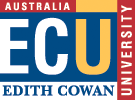COURSE INFORMATION
Disclaimer
This course information may be updated and amended immediately prior to semester. To ensure you have the correct outline, please check it again at the beginning of semester.
| M83 Master of Applied Linguistics | |||||||||||||||||||||||||||||||||||||||||||||||||||||||
The Master of Applied Linguistics is offered jointly by the School of International, Cultural and Community Studies and the School of Education.
The course can be completed in one year full-time or part-time equivalent. It provides an opportunity to extend students’ knowledge of language issues and their analytical and critical expertise, providing for advanced scholarly and professional work in a field relevant to applied linguistics, such as language teaching, TESOL, language policy and language services. |
|||||||||||||||||||||||||||||||||||||||||||||||||||||||
| ADMISSION REQUIREMENTS A relevant fourth year qualification such as a Bachelor of Arts honours degree, the Bachelor of Education or a relevant Graduate Diploma.
Applicants with a three year award or an award of weak relevance to the Master of Applied Linguistics may be admitted to the coursework program if their qualification is supplemented by sufficient relevant professional experience. |
|||||||||||||||||||||||||||||||||||||||||||||||||||||||
| COURSE LOCATION This course is available on Mt Lawley Campus. |
|||||||||||||||||||||||||||||||||||||||||||||||||||||||
| MODE OF STUDY This course is available by Full-time, or Part-time mode. |
|||||||||||||||||||||||||||||||||||||||||||||||||||||||
| MODE OF DELIVERY This course is available in the following modes of delivery - On-campus, and Online. |
|||||||||||||||||||||||||||||||||||||||||||||||||||||||
| COURSE STRUCTURE The Master of Applied Linguistics is an eight unit coursework program. Students who have a strong weighted average mark in the four units of Stage One may, with the approval of the course coordinator, opt to complete a two unit research project in place of two of the required units.
Students are required to complete four units in Stage One, and a further four units in Stage Two. Students who complete Stage One and do not wish to finish the Master of Applied Linguistics program may exit with a Graduate Certificate in TESOL if they have a previous recognised teaching qualification.
Students are required to have a minimum of 120 credit points to complete the course. |
|||||||||||||||||||||||||||||||||||||||||||||||||||||||
| |||||||||||||||||||||||||||||||||||||||||||||||||||||||
Last Updated - Higher Education: 31/03/2010 VET: 31/03/2010
